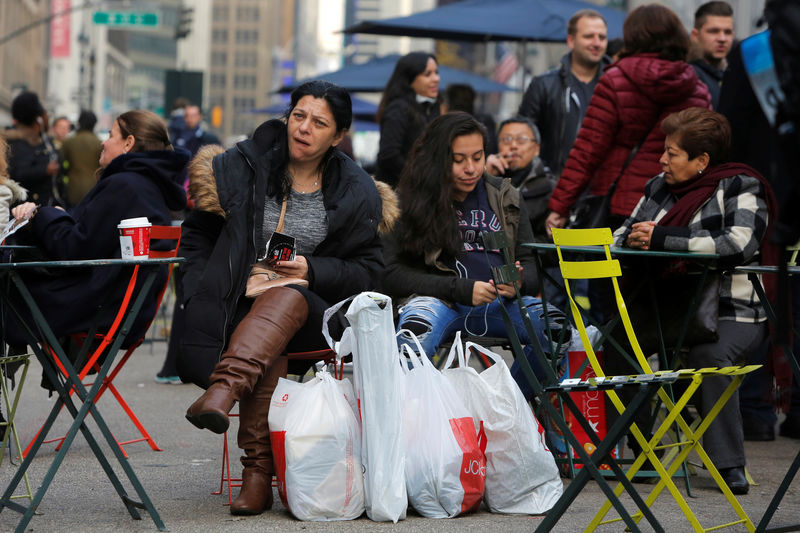WASHINGTON (Reuters) - U.S. services sector activity unexpectedly accelerated in October to a more-than two-year high, and employment strengthened, more evidence that the economy is in solid shape as the nation heads to the polls to pick the next president.
The Institute for Supply Management (ISM) said on Tuesday that its nonmanufacturing purchasing managers (PMI) index accelerated to 56.0 last month from 54.9 the prior month. It was the highest level since August 2022.
Economists polled by Reuters had forecast the services PMI declining to 53.8.
A PMI reading above 50 indicates growth in the services sector, which accounts for more than two-thirds of the economy. The ISM views PMI readings above 49 over time as generally indicating an expansion of the overall economy.
The report comes the day that Americans choose between Democratic Vice President Kamala Harris and Republican former president Donald Trump as the next occupant of the White House.
Polls show the close-fought race may hinge on voter views of the economy, where high prices remain a continued pain point for families even as inflation itself has returned to near-normal levels, unemployment has remained low, and the Federal Reserve has begun reducing interest rates to keep it that way.
On Thursday the Fed is expected to lower the policy rate again, this time by a quarter of a percentage point to the 4.50%-4.75% range.
It cut the rate by a half-of-a-percentage point in September, but largely upbeat economic data since then, including a 2.8% annualized increase in the third-quarter gross domestic product and strong consumer spending, have put the possibility of further large reductions on the back burner.
The ISM survey's new orders measure eased to 57.4 in October from 59.4 in September. The ISM's prices paid measure for services inputs ticked down to 58.1 from the prior month's eight-month high of 59.4.
ISM's measure of services employment rose to 53.0 in October, up from 48.1 in September, a signal of strengthening job growth.
The reading appears at odds with last Friday's Labor Department report showing employers sharply slowed hiring last month, adding just 12,000 jobs.

The report was widely seen as overstating job market weakness, given an ongoing Boeing (NYSE:BA) strike that hammered manufacturing jobs and a pair of hurricanes that kept more than half a million people from work.
But it also contained evidence that labor conditions have cooled. The three-month average monthly job gain is now at 104,000, below what's needed to keep up with the growth of the population, and while the unemployment rate held steady at 4.1%, that was largely because more people left the labor force.
